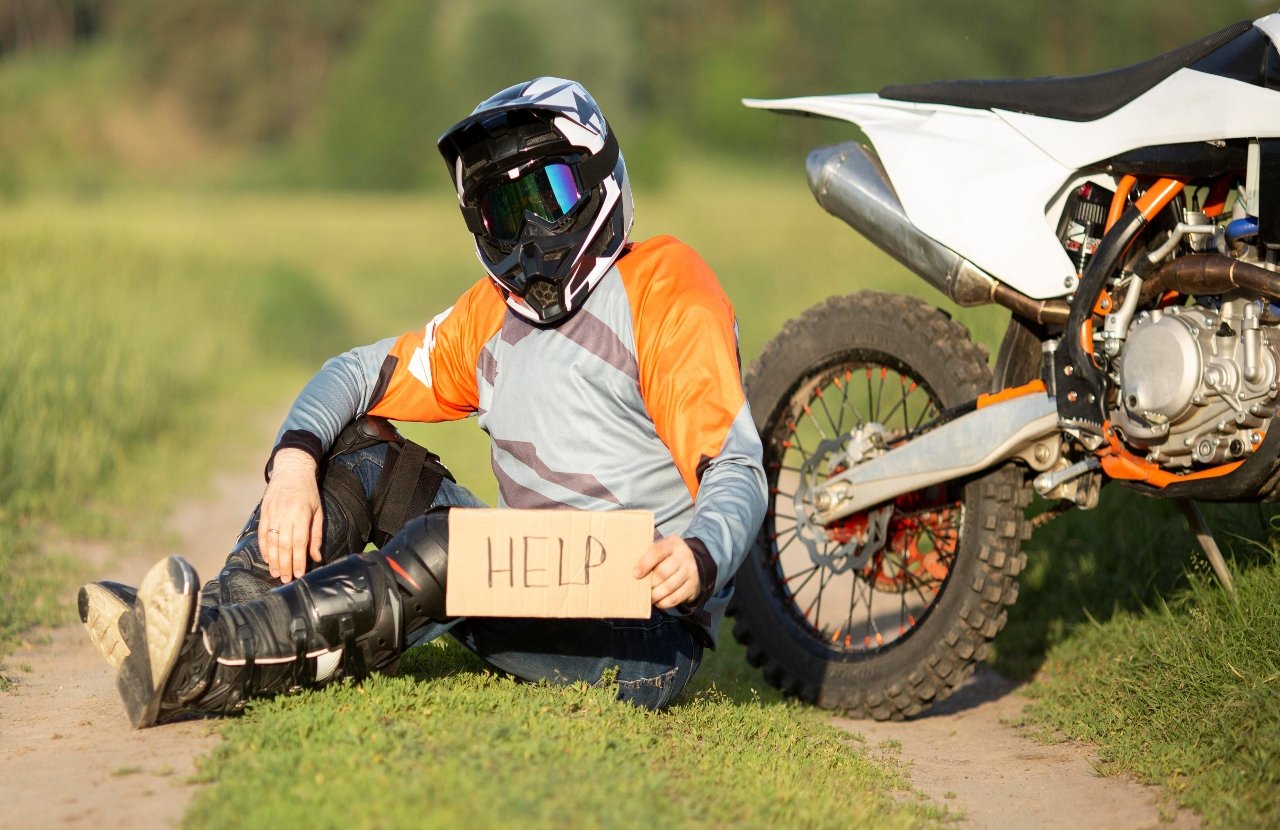A city where long stretches of highway meet busy urban streets, Fresno, California, creates both freedom and risk for motorcyclists. But what happens if you have been injured in a motorcycle accident? The shock of what comes next can be just as jarring as the crash. Medical emergencies, police reports, and confusing conversations with insurance companies all arrive at once, often when you’re least prepared to handle them.
In a place like Fresno, where heavy commuter traffic and agricultural transport trucks frequently share the road, motorcyclists face added dangers that can turn a split second into life-altering consequences. What you do in the hours and days following an accident can shape your physical recovery and financial future. This guide breaks down the immediate steps every rider in Fresno should know so that you can move forward with clarity, confidence, and the proper legal support. This guide will walk you through the steps you should take after having a motorcycle crash.
Immediate Safety Measures
The first is to ensure personal safety and the safety of the other involved parties. Get away from cars if you can. In such a situation, turn on your hazard lights to inform other drivers about the problem. If you cannot move, stay as still as possible until rescuers come.
Assessing Injuries
Once safety is established, evaluate for injuries. Do not make sudden moves that may cause this injury to worsen quickly. Even if the injuries do not appear too serious, going to the doctor is mandatory. While some injuries are apparent, others are far less clear-cut and, if not detected, may result in long-term damage.
Contact Emergency Services
The first thing you have to do is call for help. They can help provide medical aid and preserve medical evidence at the scene. Emergency responders will also control traffic and safely remove involved vehicles.
Gathering Information
Gathering information on the scene is vital for any possible legal or coverage claims. Record information about other parties involved, such as names, numbers, addresses, etc. Also, not the make and model of vehicles, license plate numbers, and insurance information.
Documenting the Scene
Photographs offer valuable evidence. Take pictures of the scene, vehicle damage, and any injuries. These images can help with insurance claims and lawsuits. Pay attention to any road conditions, the weather, or other factors that may have contributed to the accident.
Speaking With Witnesses
If there are witnesses, getting their accounts is helpful. Get their contact information and a few lines about what they saw. Witness testimony can give more insight into the incident.
Avoiding Admission of Fault
Do not admit guilt on the spot. Expressing remorse or apology can be inappropriately interpreted as an admission of liability. Stick with the facts, and do not start speculating about the cause of the accident until after all information has been reviewed.
Seeking Medical Attention
Once you have left, you must undergo a complete medical examination. A healthcare provider can spot injuries that are not easily spotted, even if they seem mild. Medical documentation can sometimes be necessary for filing insurance claims.
Reporting the Accident
Contact the insurance provider promptly and share the incident details with them. Insurance companies must be notified as soon as possible to ensure they can process your claims well. Tell the truth and provide the correct information to avoid issues later on.
Legal Considerations
You may need to talk to a lawyer about your auto accident claim, particularly if your injuries are severe or if you disagree with who caused the crash. An attorney can help navigate the legal system, protect your rights, and maximize your potential for compensation.
Managing Emotional Impact
It is vital to recognize some of the psychological effects of a motorcycle crash that need to be dealt with. Reaching out to friends, family, or a mental health professional can help with emotional healing.
Fixing the Bike or Getting a New One
Assess the damage sustained to the bike to determine whether it can be fixed or needs replacing. Knowing what the insurance policy covers can help you avoid costly repairs or substitutions.
Financial Recovery
The financial impact of an accident can be challenging to cope with. Documenting medical expenses, repair costs, and lost wages can help support compensation claims. While recovering from the financial impact can take time, having documentation can help.
Rebuilding Confidence
Climbing back onto a motorcycle after a crash can be intimidating. It is essential to allow yourself time to heal physically and mentally. Try a motorcycle safety course to regain your confidence and riding skills.
Staying Informed
Staying updated on safety practices and changes in traffic laws can reduce the likelihood of similar accidents occurring in the future. Regular training and safety updates make riding safer.
To Sum Up
A motorcycle accident is challenging. However, if one takes the proper steps, one can secure one’s health and rights. Focusing on safety, accumulating resources, and accessing professional assistance, especially in the early days, can be tremendously helpful in the recovery process.

